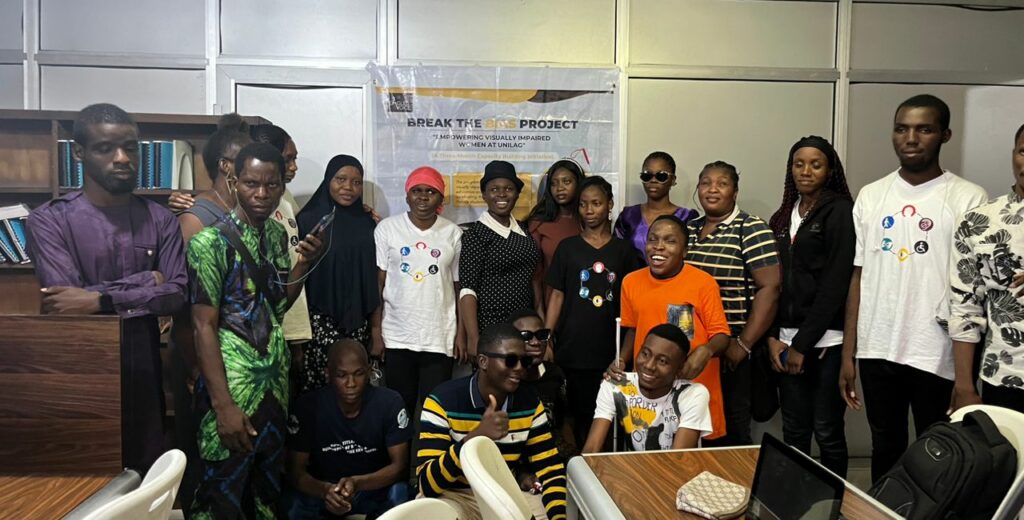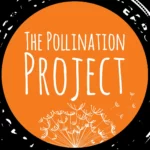Beneficiaries: visually impaired women
The Project
 “Break the Bias” is a transformative initiative crafted to bridge the gap experienced by visually impaired women in acquiring fundamental skills necessary for navigating today’s world. Rooted in personal experience, the project’s founder understands the profound impact of digital proficiency, communication abilities, and independent mobility on the participation and leadership roles of visually impaired individuals in society.
“Break the Bias” is a transformative initiative crafted to bridge the gap experienced by visually impaired women in acquiring fundamental skills necessary for navigating today’s world. Rooted in personal experience, the project’s founder understands the profound impact of digital proficiency, communication abilities, and independent mobility on the participation and leadership roles of visually impaired individuals in society.
Driven by a passion to empower, the project centered its efforts on the University of Lagos, where visually impaired individuals were equipped with essential skills through comprehensive training sessions. Facilitators adept in computer proficiency, communication strategies, emotional intelligence, and mobility orientation guided participants through a journey of self-discovery and empowerment.
In Nigeria, pervasive prejudices and discriminatory attitudes towards the visually impaired hinder their integration and equal participation in various spheres of life, particularly for women. The country’s rankings in global gender gap indices underscore the urgent need for initiatives like “Break the Bias” to address systemic barriers faced by marginalized groups.
The Impact of the Seed Grant
Thanks to the support of the TPP grant, the project achieved significant milestones. 25 visually impaired women emerged with newfound confidence in communication, both written and verbal, mastering essential computer skills with screen readers, and elevating their abilities in public speaking, debate, critical thinking, and research. Additionally, they gained technical ability in handling computer and smartphone technologies independently, alongside enhanced mobility orientation with the white cane.
By empowering visually impaired women with these multifaceted skills, “Break the Bias” aims to dismantle societal misconceptions and pave the way for greater inclusivity and equality.

On behalf of the participants of the Break the Bias project and my entire team that ensured that we make this a reality, we say a very big thank you to the pollination project for ensuring that we are able to meet the needs of the visually impaired students in Lagos.
By this, we are breaking the bias that lumps us together and everyone is able to equally participate regardless of gender, disability, age and location.
The Future
The vision for “Break the Bias” extends beyond its current scope, with plans to expand its reach to other states across Nigeria. The resounding success of the project has reverberated across regions, with visually impaired women in the South South region expressing a keen interest in its implementation in their states. Their eagerness to participate underscores the profound impact of the initiative and the urgent need for similar programs nationwide.
Moreover, the project has served as a catalyst for broader reflections on the digital literacy landscape for visually impaired individuals. In today’s digital-centric economy, proficiency in digital skills is indispensable for meaningful participation and economic empowerment. While global goals advocate for the inclusion of the visually impaired, the reality is that without requisite skills, barriers persist, impeding their full integration into society.
Recognizing this imperative, “Break the Bias” remains committed to furthering digital literacy initiatives tailored to the unique needs of visually impaired individuals. As efforts continue to upscale the project, the goal remains steadfast: to empower visually impaired individuals across Nigeria and beyond, ensuring their active participation in all facets of life.
Oluwakemi Odusanya
 Oluwakemi Odusanya is the founder of Eagle’s Voice International for Disability Rights. She is driven by her personal experience of living with a visual impairment. She is a disability-rights advocate, a freelance journalist, and holds a Master’s degree in Public and International Affairs. with aspirations to empower many blind women in Nigeria.
Oluwakemi Odusanya is the founder of Eagle’s Voice International for Disability Rights. She is driven by her personal experience of living with a visual impairment. She is a disability-rights advocate, a freelance journalist, and holds a Master’s degree in Public and International Affairs. with aspirations to empower many blind women in Nigeria.
Her journey took a significant turn at the age of 13 when she lost her sight. Desperate to restore her vision, she sought help from various herbal doctors, but none succeeded. She experienced firsthand the struggles of depression, social exclusion, and a disrupted education. However, a fortuitous encounter between her grieving mother and a compassionate friend led to her enrollment at a specialized school for the blind, where she found rehabilitation and reintegration into society.
After completing secondary school, Oluwakemi was admitted to the University of Lagos, where she studied Mass Communication. During her time at university, she became acutely aware of the disparity between blind men and women in mainstream systems. Through in-depth research and interactions, she identified key factors such as ignorance, self-withdrawal, and a lack of basic skills contributing to the widespread exclusion of blind women, leaving them more dependent and less competitive.
This realization fueled her passion for change: “Considering all barriers to dignified employment opportunities for blind women, I am inspired to change the narrative by empowering 20 blind and partially sighted women in Lagos with basic skills needed for both daily and professional living.”


